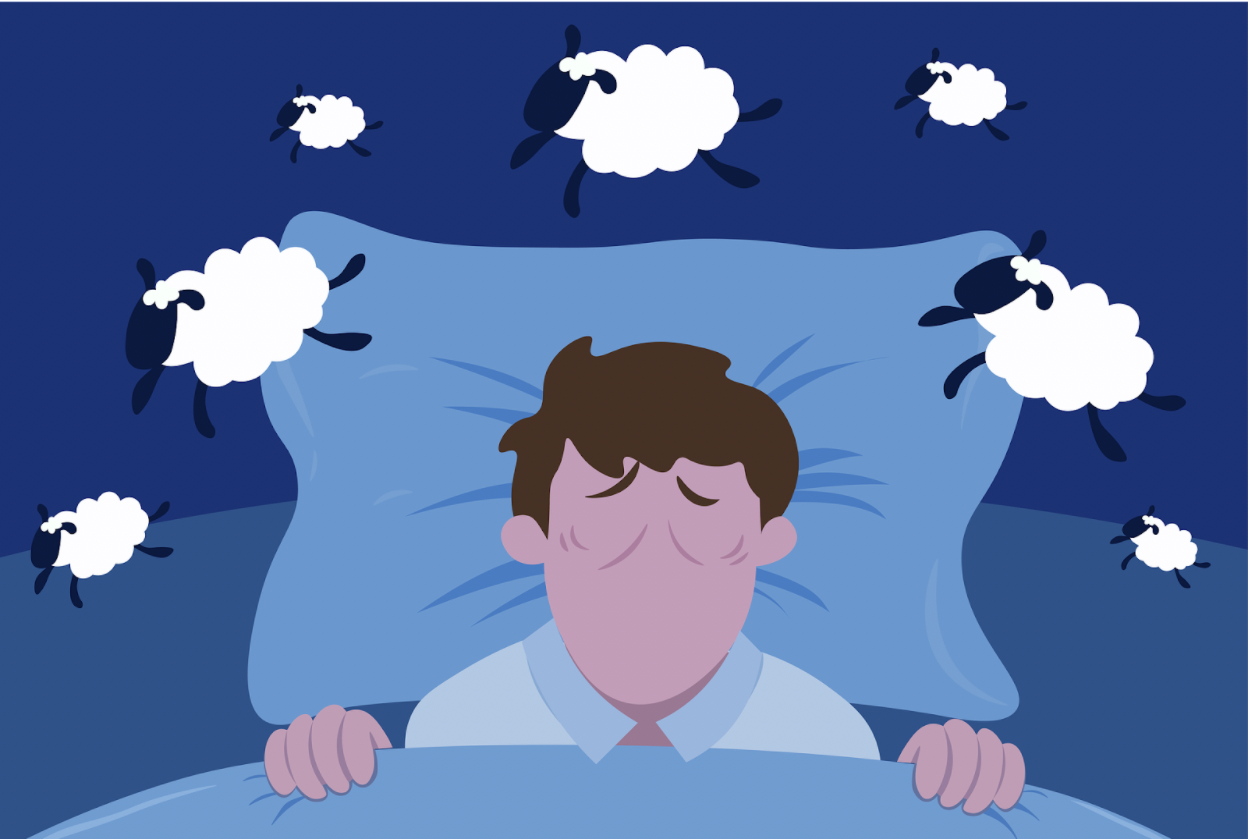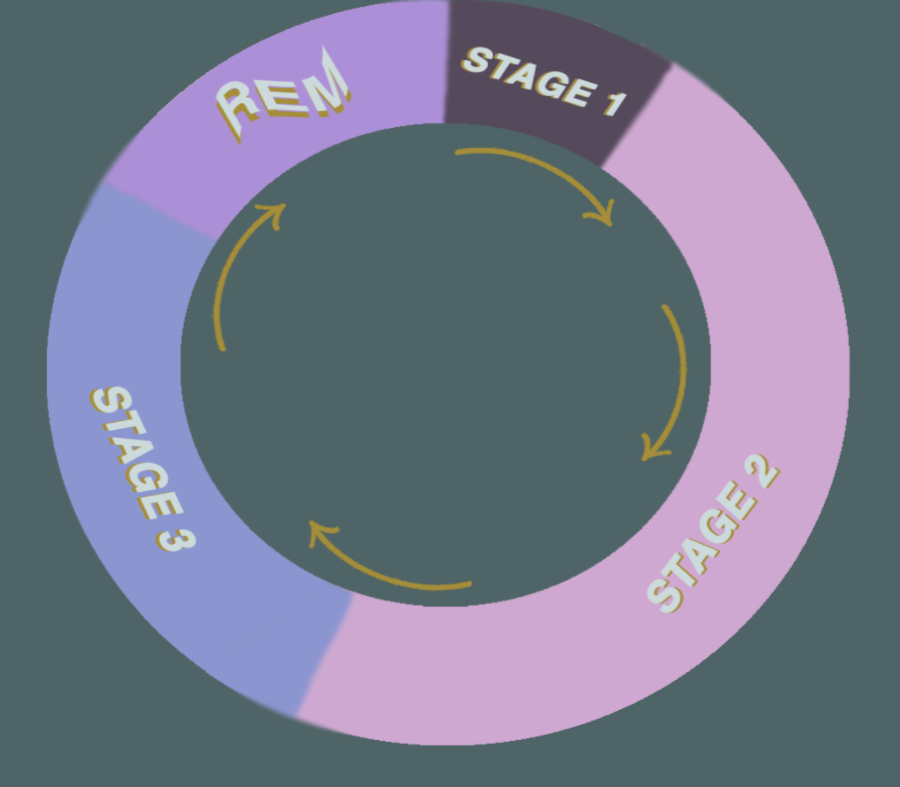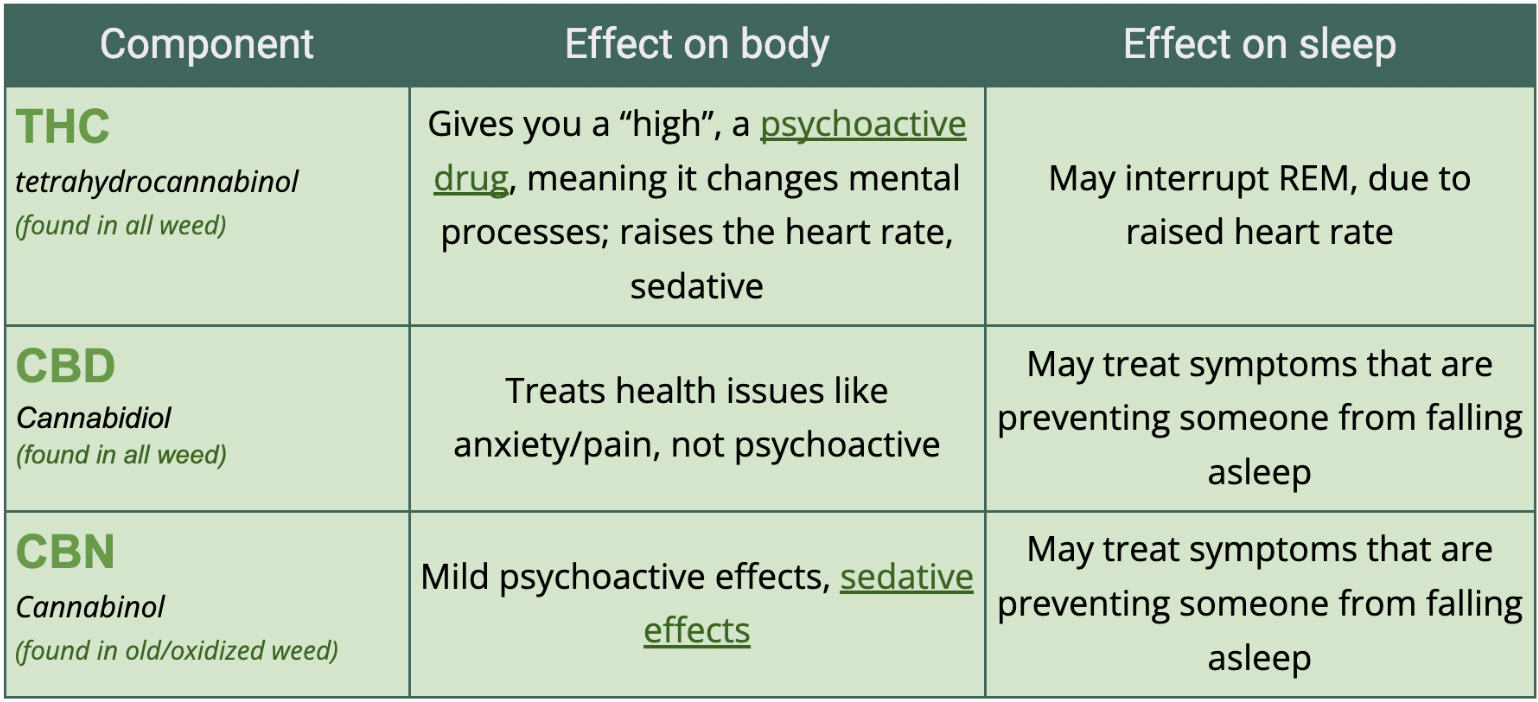Mr. Sandman, bring me some weed
How smoking weed before bedtime changes the way you sleep – and not necessarily for the better
Maiya Focht • February 28, 2022

Cannabis is recreationally available in 18 states, and its usage is decriminalized in another 11. [Credit: HaticeEROL | CC0]
When Emma Costello took a break from smoking cannabis before bed, her dreams returned. Blips of people she knew and realistic situations played behind her eyes, a distorted tape of the day’s greatest hits and failures.
But when she was smoking every day, sleep was more like a cozy, groggy and dark cocoon. “If I’m consistently smoking then I really, really do not remember anything from my sleep,” says the 23-year-old illustrator from Los Angeles. Costello is not alone: An estimated 70% of the 11.8 million young adult marijuana users in the United States use the drug to go to sleep, according to the Sleep Foundation.
As it turns out, a cannabis-assisted slumber might not actually be as good for you as a sober rest. While cannabis does help the body drift more easily into the early stages of the sleep cycle, preliminary scientific evidence suggests that important later stages may be altered.
Here’s the real deal on slumbering while stoned:
Drifting off
Contrary to popular belief, weed itself doesn’t move your body into the first stage of sleep, according to Dr. Michael Breus, a clinical psychologist and author who is one of the most widely quoted sleep experts in the U.S. Instead, he explains, the drug addresses some of the common problems that stop someone from sleeping:most notably, anxiety and pain.
So once those symptoms are eased, the body can do the rest by default. The principal active ingredient in marijuana – THC, or tetrahydrocannabinol – attaches itself to certain receptors in the brain, called cannabinoid receptors. This causes the drug to have sedative, or sleep-promoting, effects, says Ryan Vandrey, a psychiatrist and pharmacologist at the Johns Hopkins University School of Medicine.
In the next stage of sleep, muscles relax, eye movement stops, body temperature drops and heart and breathing rates decrease. This period is all about slowing down as the body transitions from light to deep sleep, according to Breus.
Then comes the third stage, which is sometimes called restorative sleep. Here, your body repairs and regenerates bone, muscle and tissues. Physiological signals slow even further, and brain waves begin stretching low and wide in lazy patterns called delta waves, says Dr. David Neubauer a psychiatrist and sleep medicine specialist at Johns Hopkins.
To enter the crucial fourth stage – known as REM sleep or Rapid Eye Movement – the heart needs to slow even more to around 60 beats per minute, says Breus. This is where weed may come into play, thanks to THC.

During a full eight hours of rest, the sleep cycle may repeat four to six times, starting at Stage 1 and ending with REM. [Credit: Maiya Focht]
Too wound up to dream?
In REM sleep, most of the body is lulled into a state of near-paralysis, but it’s also when the brain, respiratory muscles and eyes hop into high activity.
Though dreaming may occur at any point in the night, it most commonly and vividly occurs when the body is in REM, says Johns Hopkins’ Neubauer. “When we’re in REM sleep, our brains are as active as if we’re awake,” he says.
But if your blood levels of THC are high, your heart rate and other bodily rhythms might not slow down enough to fully enter the REM stage. In fact, although heavy weed smokers may dream, they often don’t remember it. This speaks to the quality and depth of sleep that they’re able to access, experts say. In his field of work, “I do hear reliably that heavy cannabis users report not very often remembering dreams,” says Vandrey.
When someone smokes marijuana every day, the amount of THC they need to ingest to feel an effect increases. This in turn increases the risk that they won’t be able to enter REM sleep, according to Vandrey. “The use of THC or cannabis can reduce the percentage of time we spend in REM sleep.”
Even missing one night’s worth of REM can increase feelings of morning grogginess. “REM sleep and dreaming serve as a function of clearing out certain memory banks, so we’re ready for the next day” says Neubauer. This grogginess is something Costello, who has started taking breaks from using the drug, also observed. When she noticed weed taking a toll on her wakefulness during the day, she decided to wean off it.
In the long run, missing out on REM can take a toll on memory, according to Vandrey. “If you take your brain out of homeostasis, and you’re introducing a drug to it every day, there’s a consequence to that,” he says. But he also notes that this effect may be found across the whole spectrum of drugs acting on sleep, both legal and illegal.
On the other hand, there may be some cases where missing out on REM and dreams might actually be a positive, according to neurologist Dr. Ethan Russo of CReDO Science, which is working on cannabis-based medications.
For example, intrusive nightmares often prevent people with Post-Traumatic Stress Disorder (PTSD) survivors from getting a restful night’s sleep. A cannabis-based drug allowing them to circumvent those nightmares may be helpful, he said.
There are a couple of theories about why we have this REM sleep in the first place, Neubauer says. One is that during this stage, our brains help cleanse out toxins that build up naturally in the brain over a day. Another, he says, is that our dreams are using the horror of being naked in class or the delight of a kiss with our celebrity crush to process and store information and emotions we learned during the day.
Regardless of the theory, experts agree that this period is also vital in our memory storage, as is sleep as a whole. If the sleep cycle is disrupted, some memories may not be stored in the long term, Neubauer elaborates. Normally, the sleep cycle would repeat three to four times in a normal night, according to sleep specialists at the University of Michigan. Any less could cause that grogginess and forgetfulness that some chronic users of marijuana cite.
Beyond THC
THC may not be the only active ingredient in cannabis that affects sleep – cannabidiol (CBD) and cannabinol (CBN) might affect slumber as well, Breus says. He notes, however, that the evidence is sparse because only a few studies have tested the three compounds in isolation in relation to sleep. Here’s what he says we do know about each of those three ingredients:

Information from Dr. Michael Breus and Ryan Vandrey [Chart by Maiya Focht]
The final puff
Marijuana has been used recreationally for far longer than scientists have been able to methodically study it, which is why it’s still hard for experts to answer many questions about cannabis and sleep definitively.
But if you are one of the millions of people who use cannabis as a sleep aid and you’re happy with the results, Breus advises proceeding cautiously and limiting your intake. Smoking too much, like drinking too much alcohol, may yield more negatives than we already know. “I don’t want people to get stoned, I want people to go to bed,” he says. “And there’s a really big difference there.”